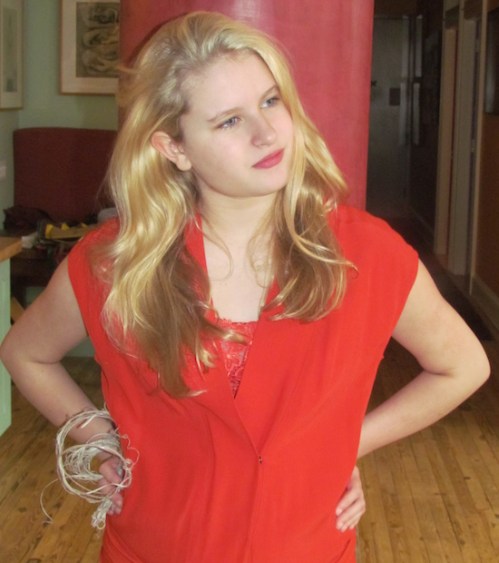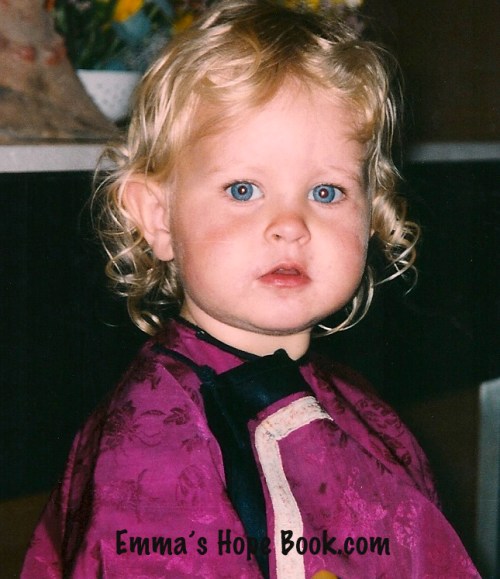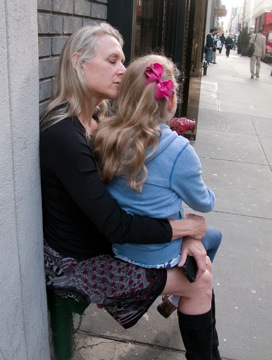At a certain point during Richard’s radio show the other night, where he was featuring Moms, he asked me about those years when we were determined to find a cure for our daughter. I didn’t want to take up time on the show to talk about all of that because there was so much to cover, but also because it makes me really sad to talk about it and I also know it is hard for many of my Autistic friends to hear, two of whom were guests on the show and many more who I knew were listening! I try hard not to live in regret, but I’ve done things that I really DO regret. Things I really do wish I could go back and erase and do again differently. More than anything, all those therapies and bio medical treatments we did, fall into that folder labeled “Things I wish I could do over.”
My reluctance to talk about all of this the other night on the radio wasn’t because I don’t think it’s important as much as it’s really painful to talk about and I know, for many of my friends, people I love dearly who happen to also be Autistic, it is very painful for them to hear me talk about those years, all those years when I was so intent on curing my daughter. It may remind them of their own upbringing. It may bring up all those devastating feelings of being unworthy or that they were somehow damaged or diseased, or any of the other hurtful words people use when discussing autism, that hurt them. So to my Autistic friends, please skip down to the final paragraph. The last thing I want to do is cause more pain and suffering to those I love.
At the time, after Emma’s diagnosis was given, I believed autism was something that could be “treated” the way one treats a disease. Only it isn’t a disease. But at the time I thought things like vitamin supplements , homeopathic remedies, therapies like ABA and diets could actually remove the “autism”, that these things would somehow transform her brain from an Autistic brain to a non Autistic brain. I know it may sound over the top, even ridiculous to many, but at the time, I wanted to believe and so I bought into the idea that autism could be ‘removed’. The concept of someone being pressured into learning to “pass” as non Autistic and the massive emotional and physical toll that inevitably takes, was not something I knew about at the time. It never occurred to me to wonder what the fallout might be or how my own child’s self-esteem might suffer as a direct result of what I was doing and saying.
Over time, as I kept trying different things, which culminated in going to Central America for stem cell treatments, I continued to believe, being the very best mother I could be, meant doing everything I could to “remove” her autism. I believed all those words that are used to describe autism: disease, affliction, epidemic and crisis. Autism was BAD. Autism meant all kinds of things and none of them were positive or beneficial. So that’s what I pursued – a cure. And I pursued a cure with the same dogged persistence I now apply to changing how autism is viewed by others. Where I once was determined to change my daughter, I am now determined to change society’s views of autism and, it must be added, society’s views of Autistic people.
You cannot talk about autism without talking about Autistic people. Yet people do all the time. They talk about autism as though their words will have no affect on those who are Autistic. But you can’t do that. When we talk about autism we ARE talking about our Autistic children. We ARE talking about our Autistic friends. We ARE talking about Autistic people. What we say, how autism is depicted, DOES impact those who are Autistic . It does directly affect how others then treat them. To pretend that all the derogatory language used has no direct effect on Autistic people is ignoring that fact. And this is where all of this no longer is just about my daughter and the risks I took and the impact my actions have had on her. This is about something far bigger than any one person. This is about a segment of the population who are Autistic and the fallout they must cope with from all of us talking about them as though it wasn’t about THEM, but instead was about a word – that word being – Autism.
Toward the end of the radio show, Lauri Swann spoke of how her son, Henry developed a relationship with his mentor Tracy Thresher and how transformative that was for him. I reflected on how magical it was for Richard, Emma and me to visit Lauri and her family during the screening of Wretches and Jabberers this past April. We reminisced about the evening before the screening, when we all went back to Lauri and Russ’s home and everyone sat around their dining room table typing to one another. The only word I could come up with to describe that visit was “magical“. And it was, because like the Autcom conference last fall and the Syracuse conference this past winter, being in an atmosphere of inclusion, where every single person is treated with the same respect as anyone else, where all are treated equal, is magical. How did we move so far from those words in the Declaration of Independence ~ “We hold these truths to be self-evident, that all men are created equal”? How did we get to this other place, where an evening like the one I’ve just described is considered out of the ordinary?
Now, sitting here writing this post, I am thinking about two more magical days and evenings when Ib came to New York City and stayed with us. Ib is like family. My children adore her. My husband adores her. I feel honored to know her, let alone call her my friend. I don’t know how to talk about all of this when lines are drawn, when words are used that separate and divide. I can’t do that and I don’t want to live in a society that does. What people do not understand fully, or cannot completely appreciate, is this – when we stop dividing people into categories of us and them – we open ourselves up to the experience of being united, of really feeling that indescribable magic of connection. The beauty of belonging. The joy of interacting with our fellow human beings and rejoicing in our diversity. There IS magic in that. This is what I wish all human beings have the opportunity to experience. This is what I hope I will live long enough to see occur on a grand scale.
Henry & Tracy during our magical visit with Lauri’s family

Adrianna, Amy Sequenzia, Em & Me

Nic & Ib on the High Line

















